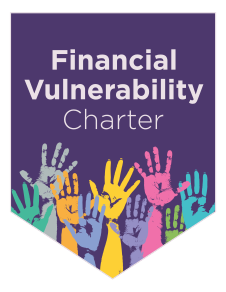Good Money Week and the rise of ethical and sustainable investing

The world is
facing some major problems. Climate change has risen to the top of the
political agenda, with millions taking to the street to implore governments to
act. The impact of extreme weather is being seen everywhere from Whaley Bridge
to the Caribbean. And, there have been question marks over the representation
of women and minorities in business in all sectors of the economy.
Across the
globe, it is often companies that contribute to these problems. Whether it’s
pollution, unfair treatment of workers or paying too little tax, the
irresponsible behaviour of corporations can perpetuate and exacerbate some of
the challenges facing the planet.
So, what can
individuals do about this?
Good Money
Week takes place this October with the aim of showcasing how consumers can make
a difference, through ethical and sustainable investing, and choosing financial
products that meet so-called ‘ESG’ criteria.
What is Good
Money Week?
Previously known as National Ethical Investment Week,
Good Money Week is now in its 12th year.
Good Money Week is a campaign that brings together
financial advisers, charities, faith communities, student groups and financial
institutions to help improve awareness of the benefits of ethical and
sustainable investing.
As they say: “We want everyone to know they have
sustainable and ethical options when it comes to their finances so we can all make
a positive impact on the environment and society without sacrificing wealth.”
What is the
focus of Good Money Week 2019?
Good Money Week is designed to raise awareness of
sustainable, responsible and ethical financial products, in banking, pensions
and investments.
This year, the campaign is focusing on pensions and empowering people to have their say on
how their pensions are invested. Many people believe that their money is just
sitting in a pension pot, unaware that it is actually being invested, and so
the campaign is keen to make people aware of the options they have when
deciding where their money is invested.
As Good Money Week say: “We’d like to see sustainable
and ethical finance become as much a part of a conscious consumer lifestyle as
recycling, free-range produce, rejecting single-use plastic and cutting down on
meat. Our pensions are a great place to start!”
What is ESG investing?
ESG investing takes environmental, social and governance
factors into account (alongside financial factors) when investment decisions
are made.
There are many factors that could influence how ESG
investment decisions are made. These include:
- Environmental issues such as whether
companies contribute to climate change, how they use natural resources, whether
they pollute, how they treat animals and how they use energy - Social issues such as staff working
conditions, the level of wages, gender and ethnic diversity, product liability,
community involvement, supply chains, and stakeholder objections - Governance issues such as transparent
accounting methods, democratic voting for shareholders, paying corporate taxes,
avoidance of conflicts of interest, and legal business practices.
Good Money Week argue that by
choosing sustainable and ethical banks, pensions and investments, consumers can
ensure they don’t support companies that fund problems such as child labour,
modern slavery, low pay, and climate change.
While ethical investing has been around for decades, ESG investing is on the rise across the UK and Europe. Data from Morningstar shows that ESG assets under management in Europe now stands at €684 billion. And, 290 ESG-oriented open-ended and exchange-traded funds were launched in 2018 alone.
Why is the
number of ESG investments growing?
There are two main reasons why the demand for ESG investing is on the increase:
- The world is changing
If you turn on the news, you’re likely to see stories about climate
change protests, fires in the Amazon or devastating floods or storms. You’ll
also see regular stories about data breaches and pay inequality.
The major changes facing the world introduce new risk factors that investors may have not had to deal with previously. So, as complex challenges arise, investors are likely to reconsider traditional approaches to investing.
2. Investor demands are changing
In Schroders’ 2018 Global
Investor Survey, more than three-quarters (76%) of respondents said that sustainable
investing had become more important to them in the last five years. And, the
same research also found that those aged between 18 and 44 were significantly
more likely than those aged 65 or older to frequently consider their carbon
footprint, for example.
Research from Triodos Bank has
also found that a fifth of UK investors are planning to
invest in a socially responsible investment fund in the coming years, rising to
47% amongst investors aged 18-34.
And, a 2016 Bank of America report speculated that, over the next 20 to 30 years, the millennial generation could put USD15 to USD20 trillion into ESG investments, suggesting that the demand is only going to increase.
It’s important to note that, while ESG investing is in demand, it still forms a
relatively small proportion of all investments. For example, ethical products (which
have been around for longer than ESG products) represented only 1.5%
of the overall assets in funds within the UK at the end of April 2019.
You don’t
have to sacrifice performance for ethics
Choosing ESG
investments doesn’t mean you’ll sacrifice the returns on your investment.
That’s the conclusion of recent analysis by Interactive Investor, which found
that ethical versions of funds have produced better returns than their standard
counterparts in recent years, although any returns are not guaranteed.
A study of performance from six ethical funds with conventional equivalents
found that five of the ESG funds had outperformed over the three years to
the end of August 2019. Four of the ethical funds also came out top in the
first eight months of 2019.
Moira O’Neill, Head of Personal Finance at Interactive Investor, said: “The
data provides further evidence that you don’t have to compromise returns to
invest ethically. In many cases, ethical funds have a solid track record of
outperforming similar funds run by the same investment house.”
Get in touch
Want to have a chat about your investments or the pros
and cons of ESG investments? Get in touch. Email info@depledgeswm.com or call (0161) 8080200.
The value of your investment (and any income from them) can
go down as well as up and you may not get back the full amount you invested.
Past performance is not a reliable indicator of future performance. Investing
in shares should be regarded as a long-term investment and should fit in with
your overall attitude to risk and financial circumstances.










